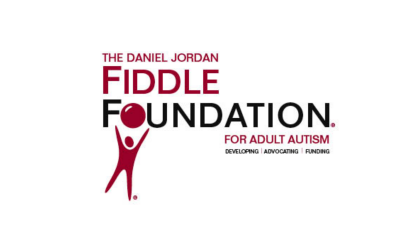April is National Stress Awareness Month. We spoke with Bernardo Hiraldo, Teaching Instructor and Associate Director of Field Education, about his journey to a career in social work and ways we can observe National Stress Month.
Tell us a bit about your journey to social work:
I have always had a passion for helping those around me. Growing up, I lived in economically challenged communities where there was often violence, financial insecurity, and homelessness. After I completed my military service, I knew that I wanted to be in the helping profession to have the opportunity to empower others who struggled with life challenges. Social work is a great profession and offers diverse opportunities in various settings, such as hospitals, private practice, nonprofits, and for-profit organizations. In my clinical practice, I’ve worked in inpatient and outpatient settings that I’ve found extremely rewarding. It’s been a great journey to get to this point in my life and to be part of this profession. I have met incredible people with amazing stories of strength and determination. It's been my privilege to hear these stories.
What is the significance of this month for you?
For many of us in this profession, the work that we do with others is paramount. When we talk about being “agents of change,” to me this holds significant power and responsibility. Our commitment to our social work values paves the way to strengthen our relationships with the individuals we serve. Though we all came to this profession for many different reasons, we all felt it as a “calling.” The pandemic has had an impact on our social work community. We have lost many of our social work friends who were on the front lines who were dedicated to our mission. This reminds me how strong we are as individuals and as a profession. What we do everyday matters, and if we want to continue to have an impact in the work that we do then finding ways to engage in self-care helps us to find that balance.
What are some ways people can honor Stress Awareness Month?
Stress Awareness Month has been recognized since April 1992. The purpose of this month is to make us aware of the negative impact that stress can have on each of us. The effects can lead to mental, emotional, and physical symptoms. An individual experiencing stress can feel anxious, depressed, irritable and may find themselves not behaving in productive ways. In the end, it can have detrimental consequences on the person’s life.
One of the ways that we can honor this month is by taking a moment to recognize how we are currently coping with our stress. We may have an internal dialogue, that says, “I’m okay,” or, “I don’t have time to take a break.” I would encourage individuals to reevaluate and challenge this self-talk. We live busy lives and it’s hard to slow down. Finding the ability to take the time to recharge is a strength. It is not selfish, and it allows for someone to invest in themselves. We focus a lot of our energies on supporting others, but if we don’t take the time to focus on our own wellbeing, how long will it take before we see the negative effects of these actions?
In the end, practicing stress management or self-care reaps its rewards in the way you interact with the world, and it honors you as well as those around you. I would suggest taking some time to consider what would bring you joy. You don’t have to have it all figured out. You just need to take one step at a time and be consistent.
As part my work in the field education department at Rutgers School of Social Work, we have developed a self-care toolkit that’s available online. We hope that the information and resources on the website can be a useful guide. It’s our mission to promote the well-being of our social work community. View the self-care toolkit.
What can the social work profession or social workers do to bring awareness to the impacts of stress beyond this month?
As social workers, we are helping people during their most vulnerable moments when they are working to get through challenges in their lives. In the process of trying to help, we are exposed to their growth and progress. We are also exposed to a lot of the pain and suffering that people go through in life. The work itself and witnessing the journey taken by the individuals you serve can be extremely rewarding and an honor. At the same time, we must find a way to strike a balance with the work that we do for others. There are many colleagues who entered the field with a lot of passion to change the world. Over time, they become frustrated, discouraged, and cynical about the work that they do. In the end, this has drastic implications for their mental health and overall wellbeing
As part of Stress Awareness Month, we want to take a proactive approach to becoming more aware of how we are coping with our stress. Stress can be a motivating factor in our lives; it’s not all bad, but if left unchecked then the buildup will take its toll. We want to be able to model good self-care to the people we help, who may not know how to cope with their own life pressures. If we can be their source of inspiration, this is one of the ways that we can effect change in the working relationship. As social work educators, we want to focus on preparing our students to deal with stress. We can do this by providing continued education on the symptoms of stress and destigmatizing the idea that if you seek help that it is somehow a sign of weakness rather strength. In organizations, for instance, we want to encourage people to take lunch breaks and to take time off. The goal is to create a culture that supports wellness. The results would only bring greater satisfaction to the work that we do and improve our overall quality of life.
This story was created in partnership with Rutgers School of Social Work's Inclusion, Intersectionality, Diversity, Equity, and Advancement (IIDEA) Committee in support of our commitment to diversity, equity, and inclusion.



